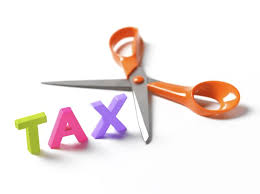 Florida has a history of being unusually lenient when it comes to debtor protections in bankruptcy. For one, we’ve opted out of the federal exemptions and have our own. The homestead protections are some of the best in the country. In some ways Florida’s exemptions are good, in others they are outdated. For instance if a debtor owns a home they are allowed only $1,000 in personal property exemptions (plus other retirement account and homestead exemptions etc). A middle class family filing bankruptcy when they are overwhelmed with bills, have personal belongings that total more than $1,000 particularly when they own a home. This amount is outdated and not reflective of the times.
Florida has a history of being unusually lenient when it comes to debtor protections in bankruptcy. For one, we’ve opted out of the federal exemptions and have our own. The homestead protections are some of the best in the country. In some ways Florida’s exemptions are good, in others they are outdated. For instance if a debtor owns a home they are allowed only $1,000 in personal property exemptions (plus other retirement account and homestead exemptions etc). A middle class family filing bankruptcy when they are overwhelmed with bills, have personal belongings that total more than $1,000 particularly when they own a home. This amount is outdated and not reflective of the times.
A recent switcharoo regarding a debtor’s homestead has caught many debtors unaware. For the past several years, many debtors’ attorneys advised their clients to waive their homestead rights and instead select an option on their Statement of Financial Affairs (“SOFA”) to “surrender” their home even though they continued to live there. Some of those clients wanted to defend a pending foreclosure or obtain a loan modification. Some ran into trouble years later and then wanted to defend a foreclosure. Perhaps a client ran into a mortgage loan servicer with poor recording skills that failed to correctly apply their payments and had to defend a foreclosure that should never have taken place. Selecting “surrender” on the SOFA can have long reaching consequences because it can forever bar a client from challenging a foreclosure even years after the fact due to a new interpretation of what the term “surrender” should mean.
On October 4, 2016, the Eleventh Circuit Court of Appeals ruled that chapter 7 debtors who file a statement of intention to surrender real property in bankruptcy cannot later contest a foreclosure action, and bankruptcy courts have broad power and authority to sanction violations. Failla v. CitiBank, N.A., case no. 15-15626 (11th Cir. October 4, 2016). While Failla is a Chapter 7 case, there is a strong probability it will be argued in a Chapter 13 as well.
 It is very important to correctly reflect the assets of your bankruptcy estate and your intentions as well as meet all the other requirements to properly file a bankruptcy. Documents that appear thorough, accurate and complete when filed, tend to receive far less scrutiny. When in doubt, disclose, disclose and disclose. If the bankruptcy trustee believes a debtor, or even worse, debtor’s counsel, has not fully and truthfully disclosed all of the requested information, that trustee will question the debtor endlessly, and will also request documents from the debtor to prove the information in the petition. It’s important to hire competent and experienced bankruptcy counsel who has a good relationship of trust with the Chapter 7 and 13 trustees for this reason. Proper preparation of a bankruptcy petition is one of the most important things a debtor and debtor’s counsel can do:
It is very important to correctly reflect the assets of your bankruptcy estate and your intentions as well as meet all the other requirements to properly file a bankruptcy. Documents that appear thorough, accurate and complete when filed, tend to receive far less scrutiny. When in doubt, disclose, disclose and disclose. If the bankruptcy trustee believes a debtor, or even worse, debtor’s counsel, has not fully and truthfully disclosed all of the requested information, that trustee will question the debtor endlessly, and will also request documents from the debtor to prove the information in the petition. It’s important to hire competent and experienced bankruptcy counsel who has a good relationship of trust with the Chapter 7 and 13 trustees for this reason. Proper preparation of a bankruptcy petition is one of the most important things a debtor and debtor’s counsel can do: Reboot Your Life: Tampa Student Loan and Bankruptcy Attorney Blog
Reboot Your Life: Tampa Student Loan and Bankruptcy Attorney Blog









